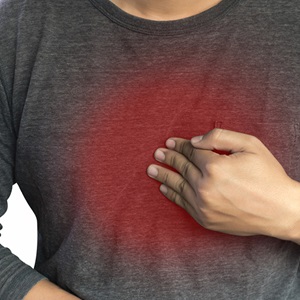Recent Posts
Take the burn out of GERD

We’ve all heard the phrase “feel the burn.” Gastroesophageal reflux disease, or GERD, is a common disorder that affects many adults. Symptoms can include heartburn and regurgitation. It is not uncommon or abnormal for someone to have these symptoms occasionally, especially after a large meal.
When it occurs twice or more weekly, it may require attention. If left untreated, it could lead to Barrett’s esophagus where the lining of the esophagus becomes “stomach like” in response to abnormal acid exposure over a long period, increasing the risk of esophageal cancer.
The recommended first step is to monitor your diet. You can try reducing or eliminating foods and beverages that can trigger heartburn, including those that are fried, fatty or spicy, and coffee and orange juice. The choices you make in your diet could cause symptoms of GERD but may not be the cause.
If a change in your diet doesn’t help, the next step is to confirm that you have GERD. A gastroenterologist makes a diagnosis based on a thorough history and physical examination. Often, treatment begins without additional diagnostic tests using strong stomach acid-blocking medications called proton pump inhibitors, sometimes referred to as PPIs.
There have been reports in the media over the last few years about potential side effects and complications of proton pump inhibitors. While it is true that there may be a slightly higher risk of kidney problems, pneumonia, diarrhea due to clostridium difficile, bone fracture and even dementia, these have to be placed in proper perspective, as they rarely occur. These medications should only be taken under the guidance of a medical provider.
If you are responding to medication for GERD, you can consider surgery, especially if you don’t want to be on a lifelong medication regimen. The goal of surgery is to tighten the junction of the esophagus and stomach to prevent the reflux of stomach contents and acid. You and your gastroenterologist should discuss what the best course of treatment would be for you, based on the risks and benefits.
The takeaway is that GERD is manageable, and there are treatment options. Listen to what your body is telling you, and take action based on your situation. There likely is a way to take the burn out of GERD.
Jaime Zighelboim, M.D., is a gastroenterologist in Eau Claire, Wisconsin.





